What if you knew more than which products a customer has been looking at or purchasing recently?
What if you knew their motivations and which messaging made them decide and purchase?
What if you knew what made your customers tick?
On average, online stores manage to convert only five in every 100 visitors into paying customers, whereas traditional brick-and-mortar stores take that number to over twenty-five.
This disparity can be traced back to the human touch and the personal sales experience received in a store, which isn’t naturally built-in in digital environments.
That experience where a knowledgeable, top-performing sales or service associate has a dialogue with patrons, applies their understanding of human behavior and psychology to adapt sales tactics and messaging to the needs and problems of the individual customer on the fly, is priceless.
This is adaptive selling at its best.
To shatter the glass ceiling that prevents businesses from maximizing the sales performance on digital channels, implementing exactly this sales approach and delivering this level of human engagement online is key.
With persuasion profiling, the online representation of this known sales practice, businesses can now transfer the best practices of human-to-human engagement to digital channels.
There are five critical elements that persuasion profiling builds on:
- YOUR CUSTOMER
what are the needs and motivations they are influenced by? - HAS AN ONLINE DIALOGUE
how do you have a conversation an online shopper to successfully gauge and understand needs and intent? You do not only require implicit data that is traceable by technology but explicit user feedback data (e.g. with digital sales assistants, chatbots,…). - WITH YOU
what’s your brand personality and brand experience? - ABOUT YOUR OFFER
how do you present your product or solution and how do you describe your offer to that very customer? - IN A CERTAIN ENVIRONMENT
what’s the momentary context in which your customers make a decision (e.g. which channel are they in? Are they just browsing, researching or do they have a clear purchase intent)?
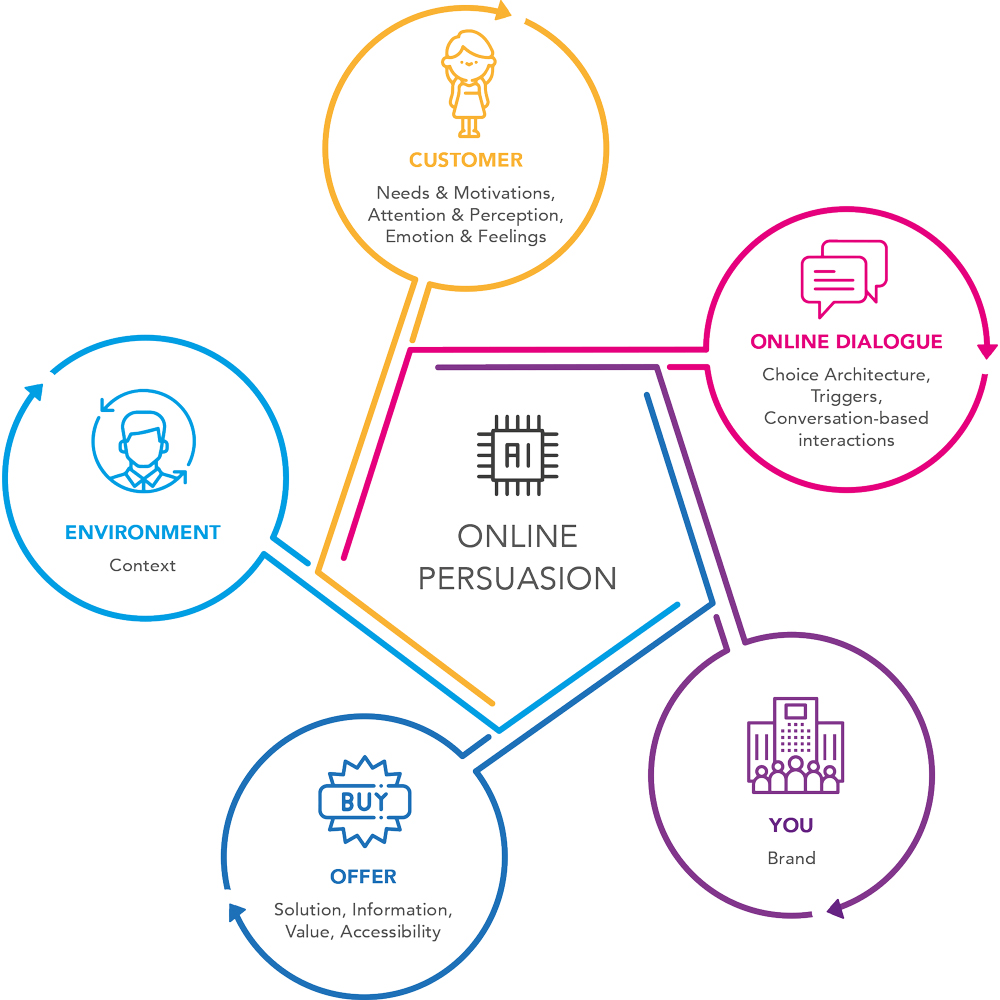
Persuasion profiling combines all these aspects and gives you the unique opportunity to personalize not just “what” but “how” a product is pitched to the customer.
Studies show that this approach is more effective in e-commerce than non-adaptive selling, yielding significantly higher click-through rates.
Read on to learn what it is and how it works.
One Product, Different Reasons to Buy
A study by Harvard researchers found that customers are drowning in options, which inevitably leads to indecision, a lack of purchase confidence, and lost revenues.
That is why persuasion profiling is quickly emerging as the pinnacle of personalized buying experiences, where the focus is on providing every customer a journey and messaging that aligns perfectly with their personal needs and tastes.
For example, there are some people who cannot resist the temptation of a good last-minute discount, while others will perceive a lowered price as an indication of subpar quality and not buy. Using a generalized sales approach and generic messages can backfire big time.
How you pitch a product to a customer is more critical than what products you pitch, and generalized marketing messages might not always work.
The good news is that people are usually consistent in which sales strategies they are likely to respond to. For example, those who base their decisions on social proof when buying a camera are very likely to buy other products such as apparel, furniture or cars in the same way.
We will talk about the six persuasion principles later.
How it Works
Maurits Kaptein and Dean Eckles, doctoral students at Stanford University, researched the effect of personalized persuasion at length.
They set up an online bookstore as an experiment and encouraged customers to browse through and mark the books they’d like to purchase. They alternated their marketing messages to see which type of phrasing would be most persuasive to each person.
Switching between persuasion techniques like authority, social proof or scarcity, they found that adapting the messaging of a pitch could increase the effectiveness of a recommendation by 30 to 40 percent.

Image source: Datarella
Persuasion profiling in a real-world business setting relies on AI and real-time analytics to do an algorithmic assessment of the customer’s interaction behavior, test different strategies and identify which persuasive techniques work best for each customer.
For example, when a customer interacts with a digital sales assistant and answers questions, the system creates a detailed persuasion profile with information on what motivates them, what kind of products they may be interested in, how to display the recommendation and which communication style the customer might respond to best.
As the profile’s refined, the assistant adjusts the pitch (communication style, offer, and recommendations) to increase chances of conversion for each customer.

The Six Core Principles of Persuasion
Famed psychologist Robert Cialdini categorized the persuasion principles that can influence your customer’s decision-making process into six categories. The key is understanding what motivates each individual customer to be able to personalize messages and offers
1. Reciprocity
When someone does something nice for us, we feel obligated to return the favor.

Spotify provides a 30-day free trial for their Premium membership hoping that customers will return the favor and continue their membership after enjoying the free offer.
Example pitch in AI digital sales assistants:

2. Scarcity
Products and offers become more attractive when their perceived availability is rather limited.
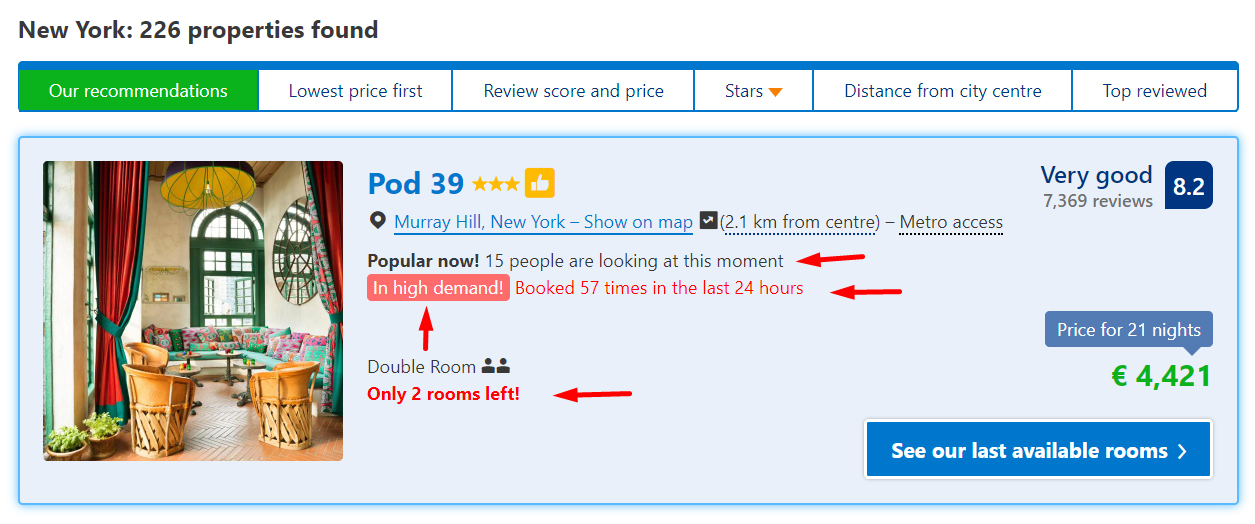
Booking.com perfectly uses this technique by showing visitors how many people are currently looking at certain accommodations, how many people have booked recently, and the current number of rooms left.
Example pitch in AI digital sales assistants:

3. Authority
When a statement or assertion comes from someone we consider a legitimate authority, we tend to believe them.
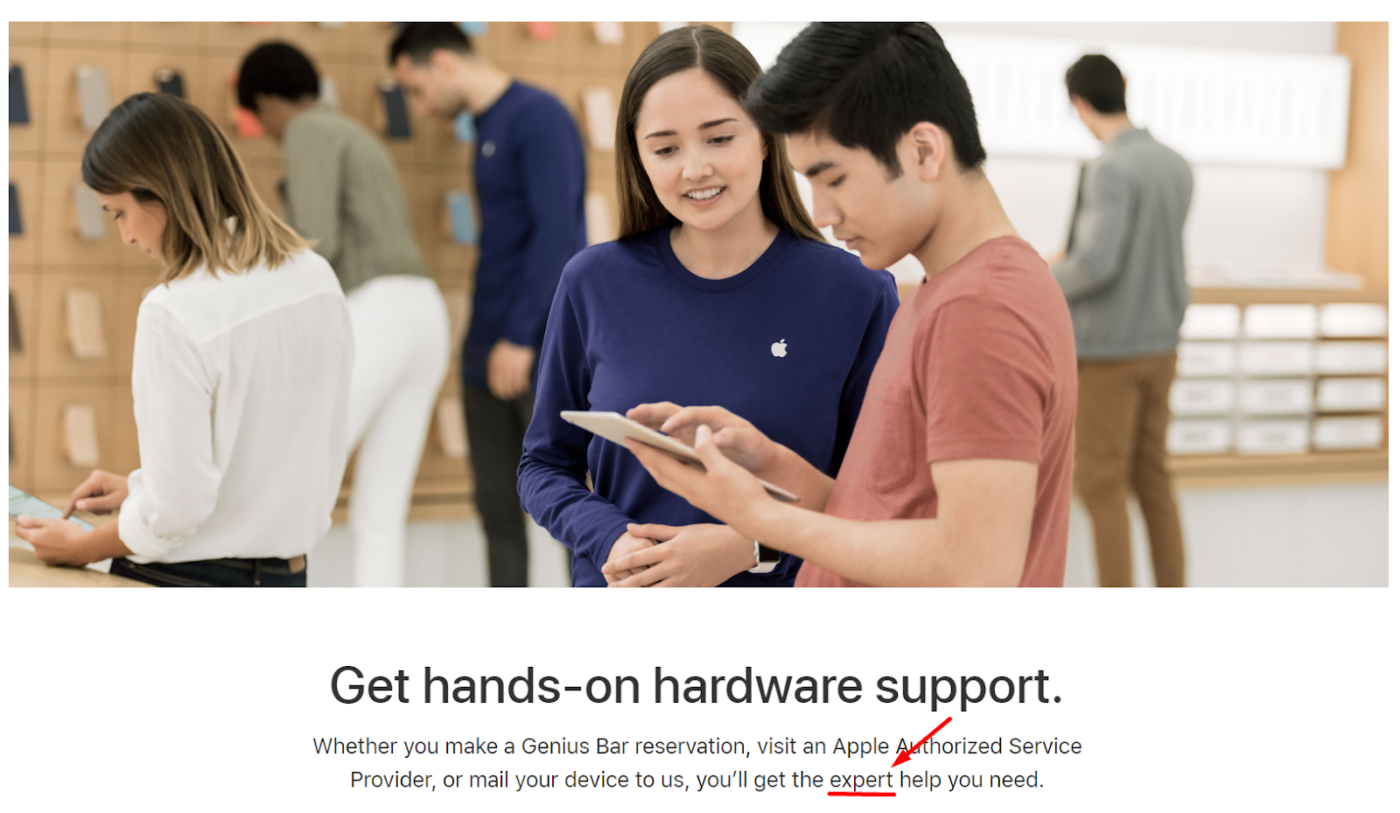
Apple’s Geniuses are tech support staff who are communicated as experts to increase consumer trust.
Example pitch in AI digital sales assistants:

4. Consistency (Commitment)
Once people commit to a goal, they tend to be motivated to honor that commitment.
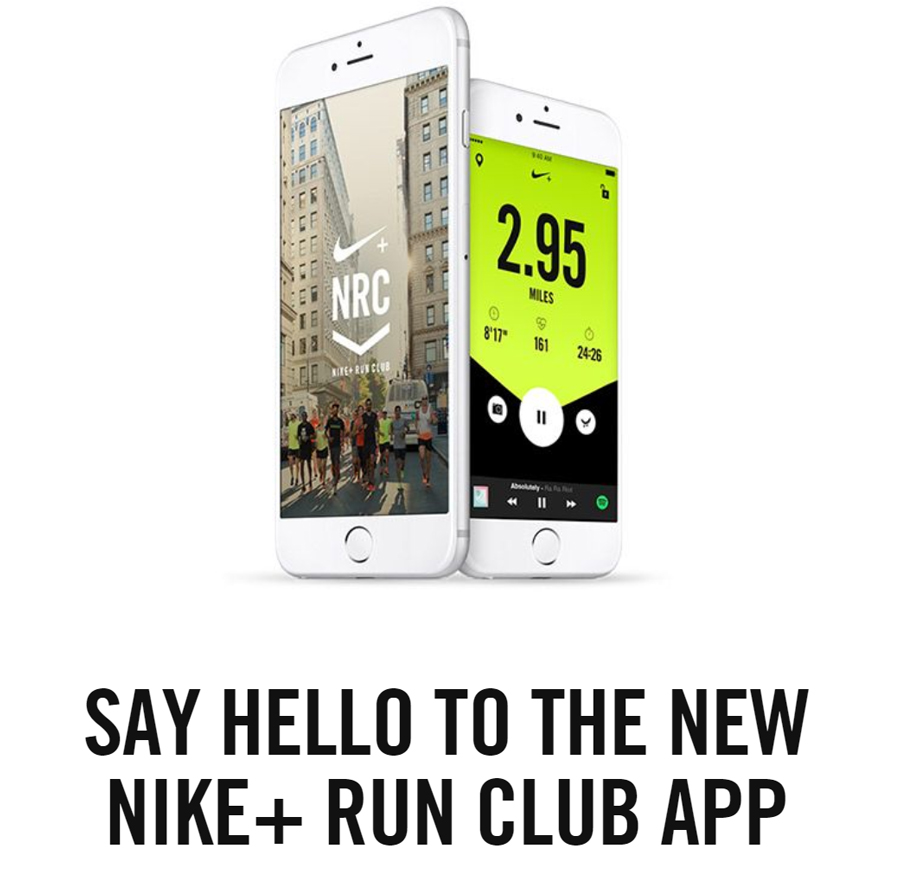
Nike Run Club is a personalized workout app that allows choosing a personal workout plan, which regularly adjusts to the person’s training speed. People who sign up are more engaged with the app and eventually more loyal to the Nike brand.
Example pitch in AI digital sales assistants:
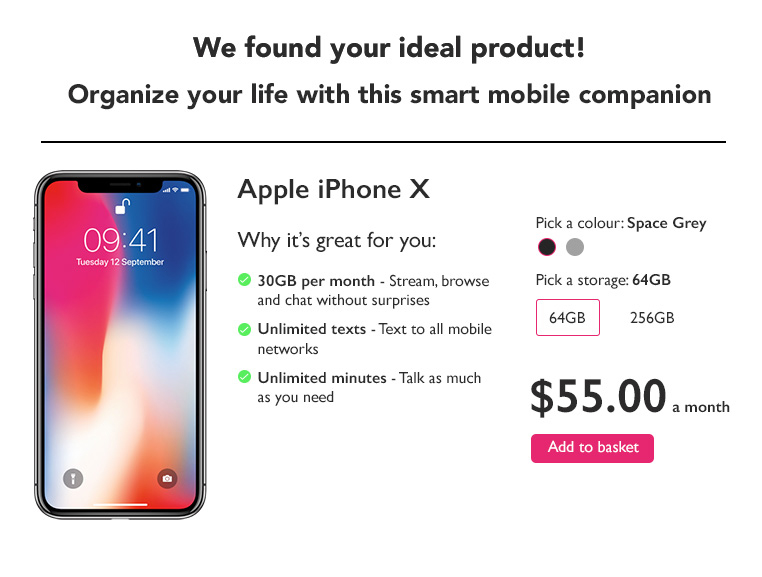
5. Liking
We are more likely to comply to a request from a person we like.
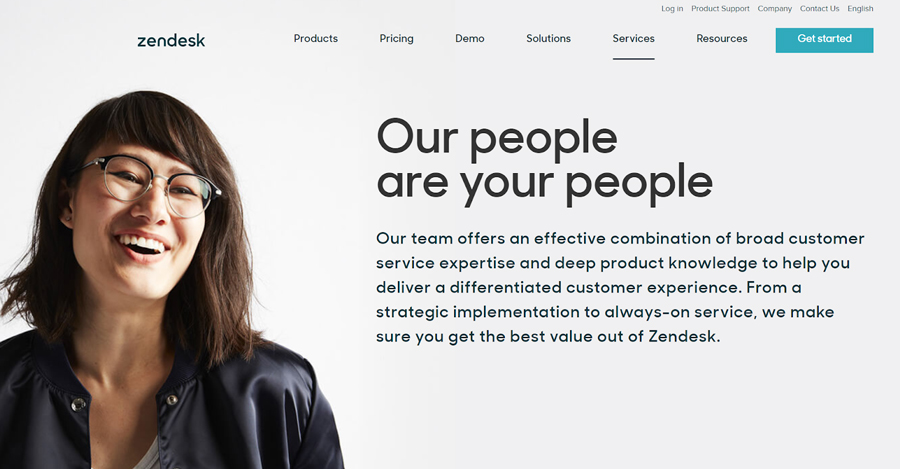
Zendesk uses photos of real people across their website who are pictured in a friendly and casual style to elicit sympathy and empathy from customers.
Example pitch in AI digital sales assistants:
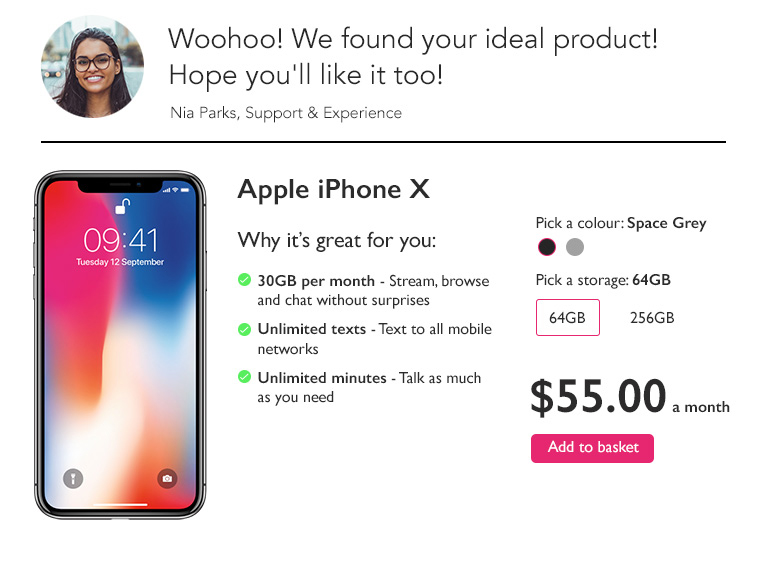
6. Social proof (Consensus)
We base decisions on the rate of collective approval.

In the “Buzz Section” of their website, Fitbit features statements by celebrities and health and tech industry experts that speak on the quality of their products.
Example pitch in AI digital sales assistants:
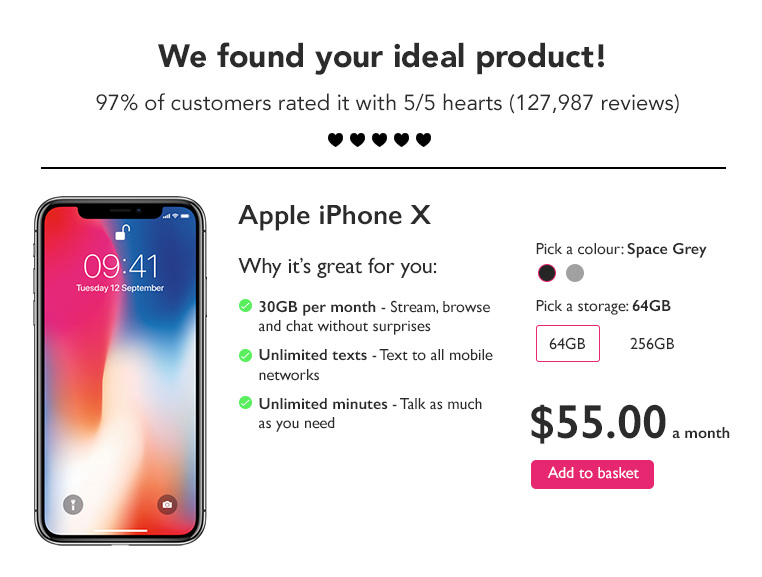
A Word on Ethics
By the very sound of it, persuasion profiling does bring forward a few concerns about ethics.
Dean Eckles says in his blog:
“In fact, Maurits Kaptein and I use this term, coined by BJ Fogg, precisely because it sounds scary. We see the potential for quite negative consequences of persuasion profiling, so we try to alert our readers to this.”
Keeping a record of a customer’s persuasion profile can have serious ethical implications.
In the wrong hands, such information can be used to manipulate voters and sway poll results using persuasive tools like authority and social proof (everybody in your neighborhood is voting for X).
It is therefore imperative that companies are transparent about the fact that they use persuasion profiling to provide customized experiences.
Read more: Don’t Confuse Persuasion and Manipulation
Final Takeaways
From a business perspective, persuasion profiling is the missing link in personalized marketing. In the age of curated experiences, handpicked collections, and selfieccinos, customers have come to expect a bespoke experience everywhere they go.
Your customers know that they are being retargeted and are agnostic to conventional marketing techniques.
Persuasion profiling is the logical evolution of traditional personalization methods. It helps you learn exactly what motivates a particular customer and allows you to tailor your sales and marketing strategy for every individual customer.
Cookie cutter messaging and universal bulk ads are replaced by what customers really want, sometimes even without knowing it themselves. That is the kind of marketing that will instill customer trust and help you position yourself as the brand that truly knows what your customers want, making you the point of decision in the customer journey.
Stop being general. Get personal!
Receive a free demo and consultation to see how AI digital sales assistants help you use persuasion profiling to create personalized experiences that address your customer’s needs, intent and context. Don’t wait to get ahead.

